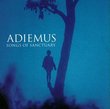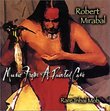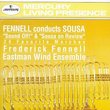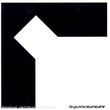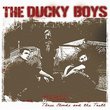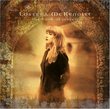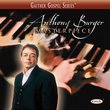| All Artists: Richard [Classical] Wagner, Metropolitan Opera Orchestra, Birgitta Svenden, Christa Ludwig, Diane Kesling, Ekkehard Wlaschiha, Hei-Kyung Hong, Heinz Zednik, James Morris, Jan-Hendrik Rootering, Kurt Moll, MariAnne Haggander, Mark Baker, Meredith Parsons, Siegfried Jerusalem, Siegfried Lorenz Title: Wagner: Das Rheingold Members Wishing: 1 Total Copies: 0 Label: Deutsche Grammophon Release Date: 9/10/2002 Genre: Classical Style: Opera & Classical Vocal Number of Discs: 2 SwapaCD Credits: 2 UPC: 028944529524 |
Search - Richard [Classical] Wagner, Metropolitan Opera Orchestra, Birgitta Svenden :: Wagner: Das Rheingold
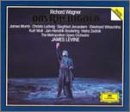 | Richard [Classical] Wagner, Metropolitan Opera Orchestra, Birgitta Svenden Wagner: Das Rheingold Genre: Classical
|
Larger Image |
CD DetailsSimilarly Requested CDs
|
CD ReviewsRheingold! Rheingold! Ted Zoldan | Los Angeles, CA, USA | 05/15/2005 (5 out of 5 stars) "When discovering Richard Wagner, it is always best to start with his earlier works: FLYING DUTCHMAN, TANNHAUSER or LOHENGRIN. I did not do so: I started my Wagnarian experience with this recording of the First night of the Ring Cycle, his most mature work, and haven't looked back since. As a whole, James Levine's ring cycle must always take second place to Solti's: Levine may have the better phrasing of Legato and makes every moment shine with beauty, but Solti's sheer force and passion for the musical achievements a great conductor can reach is unmatched. It also helps that Solti has Birgit Nilsson and Wolfgang Windgassen, the foremost Seigfried-Brunhilde pair of the 20th century, (excepting, perhaps, Melchoir sing alongside Modl or Flagstad) while Levine has Hildegard Beherens (Good but not at Nilsson's level; I prefer her in Strauss) and, in a role completely wrong for him, Reiner Goldburg. Thusly, SEIGFRIED and GOTTERDAMERUNG have moments where the singing is rather sub-par despite excellent supporting work from Levine and the rest of the cast. But Siegfried does not feature in the first half of the ring cycle, so DAS RHEINGOLD and DIE WALKURE are strong entries in the RING discographies (The other two operas actually are wonderful whenever Goldburg is not singing, and even he manages some wonderful moments in his death scene and narration before it.) But I am not here to talk about the Ring cycle as a whole, or even the first half of it. I'm here to talk about the Prolouge to the cycle: DAS RHEINGOLD. Levine is at his best with the Met Orchestra in line to perform a brilliant, lush performance of the opera. The way Levine shapes the opening moments of the piece, the River motif entering the ears, growing from near-inaudibility to enwrapping the listener in nothing less than a wave of never-ending beauty. Then the elegant voice of Woglinde (Future star Hei-Kyung Hong) enters on a graceful note and we are off. Levine's is, to me, the most successful rendition of the opening scene on record (barring Karajan's which has three ravishing maidens and an Alberich of Alberichs in Zoltan Kéléman) His Rheinmaiden trio is Hong, Diane Kesling and Maureen Forrester. Their German is not perfect (Forrester's Flosshilde sounds especially coached in the language) but they blend so perfectly together that you don't care. This is how the playful daughters of the river should sound. And, in the final moments of the opera, the mournful repeat of the song of the Rheingold they are impeccable. Their admirer, Ekkerhard Wlaischiha, will later turn out an excellent scene three and a gripping curse in scene four, but he starts out as a pitiful, neglected (yet still somewhat repulsive) creature reaching his breaking point. With such a beginning, his Alberich's motivations come out crystal clear. His voice is not beautiful, but his is the best-acted Alberich on records, and that more than makes up for it. This powerful adversary is lucky to be up against the best Wotan since Hans Hotter (Who never recorded the first role): James Morris. George London may be great (and no one is saying he isn't) and Theo Adam may have the sheer vocal beauty to pull it off, but nobody on records comes close to the level of beautiful singing and dramatic intensity Morris has. His salute to Valhalla in scene two has not bettered on records (including by his second recording, for Haitink), and he is easily the greatest RHEINGOLD Wotan on records. Loge can be taken successfully by either a Heldentenor (For example, Svet Svendholm and Wolfgang Windgassen) or by a Speiltenor. (Such as Heinz Zednik or Gerhard Stolze) Here, it is taken by the former: Siegfried Jeruselem, probably the foremost Siegfried of his day. He may not be the most beautifully sung Loge on records (That's Windgassen) nor the best acted (Stolze or Svendholm), but his mix of the two balance well and he gives a wry, nicely sung reading of his narration and provides the commentary in Scene four with impressive dramatic talent. In the other leading roles, Christa Ludwig continues to be the dominate Wagnerian Mezzo of the twentieth century. No one has ever matched her recordings of Venus, Ortrud, Brangane and the GOTTERDAMERUNG Waltraute. Now she adds, in fine voice but for a few shrill high notes, the First Fricka to her discography, to great dramatic and vocal effect. This is a goddess to be reconded with, matching Wotan in authority. In their argument that opens Scene 2, Ludwig and Morris play off each other wonderfully only by Josephine Veasey for Karajan. Kurt Moll, my favorite German Bass of the last twenty years, sings Fasholt and not only sings ravishingly beautifully, gives everyone else he sings with a lesson in how to turn a supporting character into a lead role by interpretation only: his tender, passionate Fasholt is riveting, and is probably the best thing he's ever done on records. His brother is Jan-Henrick Rootering, famous for his exemplary Fasholt, here singing a more than successful rendition of the Machiavellian Fafner. Erda is Birgitta Svenden, who sings exquisitely but, through now fault of her own, sounds a bit too young for the part. But that is truly a petty criticism. Heinz Zednik shows up as Mime, showing us why he is the greatest speiltenor since Paztak (yes, that includes the acid-voiced Stolze). Zednik is a perfect Mime: he forgoes much of the traditional shtick, but preserves much of the character's nastiness and cowardliness. His big monologue is a lesson on how to sing Mime without being a ham. In the pivotal, but rather small, part of Friea, Mari-Anne Haggander provides a fresh, young soprano who actually sounds young and pretty (a quality missed by most Frieas on record) if without much dramatic conviction. As for her brothers, Seigfried Lorenz's Donner is powerful but unmemorable in his forging song. The beautifully sung and appropriately dandyish Froh of Met regular Mark Baker rounds out the cast. (I'd like to mention that he makes a great Steva in Davis' video of JENUFA at Covent Garden) This recording, which was my first foray into the composer's work (barring Bugs Bunny cartoons and APOCALYPSE NOW) holds a special place in my heart, even with compition from the powerful Solti, Bohm, Furtwangler and Karajan sets (not to mention the fine english-language Goodall), It remains my favorite because, while individual elements have been bettered on record (Patzak's Mime, Windgassen's Loge for Bohm, Karajan's Rheinmaidens, etc.) it still holds together as a strong performance: everyone is in top form and features the best Wotan on any of these complete sets. Highly, highly recommended, as is the DVD of the work, with primarily the same cast. 5/5 " The music from the new world Baroque Music | USA | 03/31/2008 (5 out of 5 stars) "This album has the music that was left out on the new world soundtrack,When the ships coming to shore in the openning credits.Beside this it a great album overall.A must for classical music lovers or wanted the music that was left out of the new world soundtrack.This does not have the mozart piano No.3 as you will have to buy a mozart piano ablum to get that." Excellent Hamlet | Philadelphia, PA USA | 06/04/2009 (5 out of 5 stars) "This captures James Morris at his peak. He easily was the Wotan for the last two generations and ranks as the best. Rest of the cast solid and Levine's conducting impeccable."
|

 Track Listings (12) - Disc #1
Track Listings (12) - Disc #1